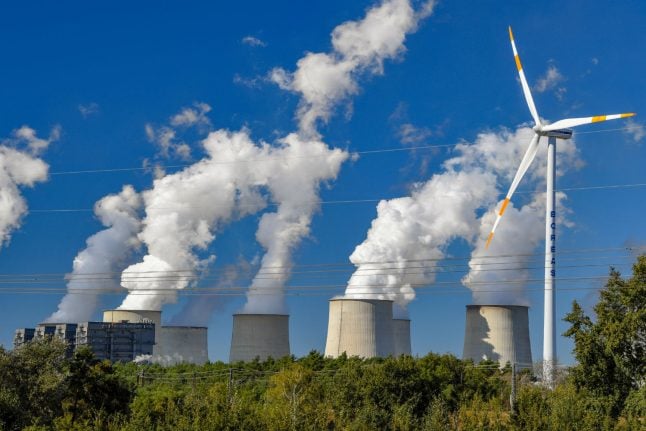That's the findings from the RWI Institute who say Germany's exit from coal is going to be expensive for consumers and taxpayers, the Rheinishe Post reported Tuesday.
Germans are already paying the highest prices for electricity in Europe, the newspaper reported. It came as around 9,000 employees of energy giant RWE Power wait for details on job cuts.
SEE ALSO: Germany should phase out coal mining by 2038: Commission
“According to various studies on this topic, the phasing out of coal could raise the price of electricity on the stock exchange by around 20 percent or one cent per kilowatt hour,” Manuel Frondel, energy expert at the RWI Leibniz Institute for Economic Research in Essen, told the Rheinishe Post.
For a three-person household with an annual consumption of typically 4000 kilowatt hours, this would mean €40 in additional costs per year.
“Electricity will be more expensive anyway, because the expansion of renewables will be financed by the EEG (Renewable Energy Sources Act) levy and grid fees will rise,” said Thilo Schaefer of the Institute of German Business.
Schaefer also said that in the medium term, getting rid of plants that use lignite or brown coal will eliminate a cheap way of generating electricity.
As The Local has reported, the Coal Commission has recommended phasing out coal by 2038 and shutting down around 12.5 of the 43 gigawatts of coal-fired power plant capacity by 2022.
SEE ALSO: Energy giant warns of significant job losses over Germany's coal phase out
Although more and more wind turbines and solar plants are being installed, they often do not supply enough electricity because they depend on weather conditions.
Can electricity consumers be relieved?
The Commission advises the federal government to relieve consumers of two billion euros in network charges. But it is still unclear how this will be done and whether the EU will participate. According to RWI expert Frondel, electricity tax could be reduced by around a third with two billion euros, i.e. from two cents per kilowatt hour to around 1.3 cents. “But it is still unclear how electricity consumers will be relieved,” Frondel said.
However, this would not assist the industry, experts say. “If the €2 billion were used to reduce the electricity tax, for example, the industry would not be helped because of its exemption from the electricity tax,” said Frondel.
The CDU Economic Council is also concerned. They say the electricity supply must remain secure and affordable and that the expansion of the grid must be accelerated. Only one eighth of the 7700-kilometre electricity grid expansion in Germany has been completed. Meanwhile, German consumers already currently pay the highest prices for electricity in Europe.
“The government will do everything it can to protect consumers from rising electricity prices by switching from coal to renewable energy,” said Federal Minister for Economic Affairs and Energy Peter Altmaier, of the centre-right Christian Democrats (CDU).



 Please whitelist us to continue reading.
Please whitelist us to continue reading.
Member comments